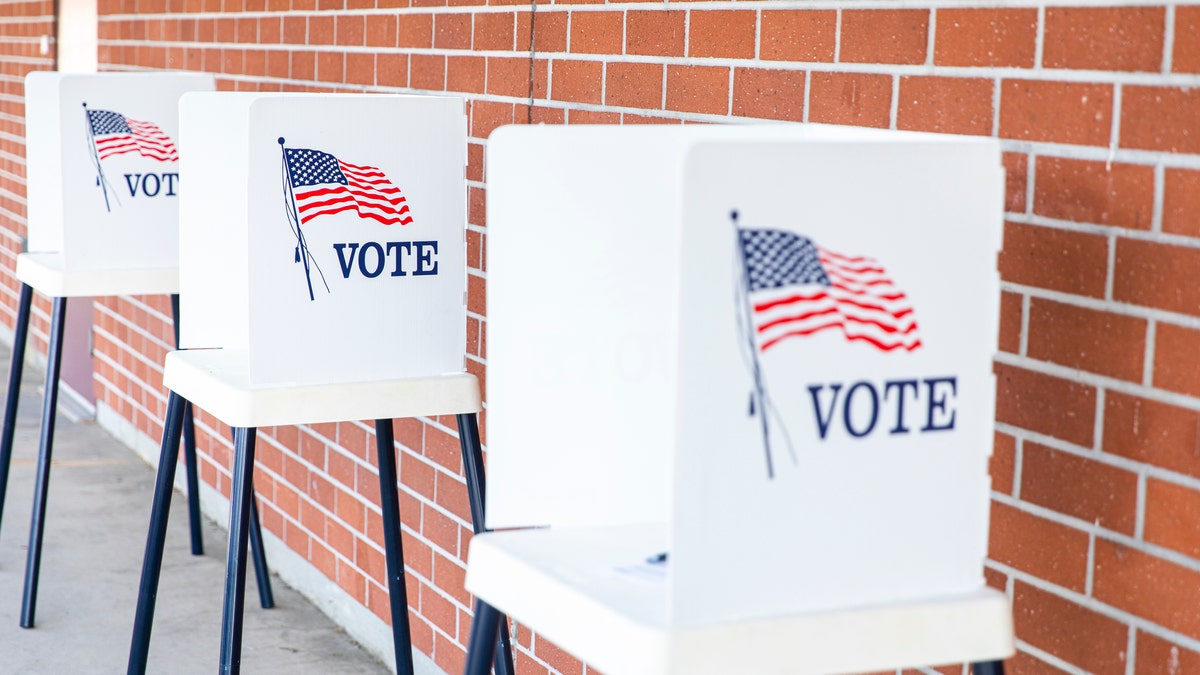Rep. Stefanik: The energy and enthusiasm is on President Trump's side
Rep. Stefanik tells 'Fox & Friends' why she should be reelected and weighs in on the 2020 presidential race.
Are poll workers at an increased risk for the novel coronavirus?
This year, Election Day coincides with the ongoing coronavirus pandemic, with experts urging voters to take extra precautions when heading to the polls. But what about those who are working the polls, who will spend hours in direct contact with others? After all, the Centers for Disease Control and Prevention (CDC) recently revised its definition of "close contact" to an individual infected with the coronavirus to include multiple, brief exposures adding up to over 15 minutes within 24 hours.

"They will be around a significant number of people — some of whom may be infectious,” said Dr. John Whyte, the chief medical officer of the health care website WebMD, to Fox News. (iStock)
“The more an individual interacts with others, and the longer that interaction, the higher the risk of COVID-19 spread,” the CDC wrote when offering tips for voters ahead of Election Day.
What’s more, poll workers, on average, are older, meaning their age alone could put them at an increased risk for COVID-19 complications should they contract the virus. In 2016, for instance, 24% of poll workers were 71 or older, while another 32% were between the ages of 61 and 70, according to federal Elections Assistance Commission data.
CORONAVIRUS TRANSMISSION AT HOME 'COMMON,' OVER 50% HOUSEHOLD CONTACTS INFECTED, CDC FINDS
While the pandemic has made older volunteers reluctant to work the polls this year, with younger Americans – namely high school and college students – taking their place in some areas across the country, experts who spoke to Fox News said poll workers, regardless of age, should be treated as frontline workers.
“They will be around a significant number of people – some of whom may be infectious,” said Dr. John Whyte, the chief medical officer of the health care website WebMD, to Fox News.
“It will be critically important that everyone follows safeguards [such as] absolutely wearing a mask, physical distancing and frequent handwashing. They should try to minimize any physical contact with people who come to vote. For instance, the public can simply show poll workers their ID rather than handing it to them,” he continued.
Whyte also suggested that voting places use plexiglass barriers between workers and voters, and noted that polling should “try to be in spaces with windows or doors open.”
VOTING AMID CORONAVIRUS: TIPS TO STAY SAFE ON ELECTION DAY
“Workers should be allowed to take frequent breaks – maybe every 30 minutes – and go outside for fresh air, or at least a different space they've been in. If possible, they should not work long shifts,” he said, noting that shifts should ideally be less than four hours in addition to the suggested break times.
“We would hope that the poll itself – the entire voting station – is organized to promote social distancing,” Dr. William Schaffner, a medical professor at Vanderbilt University and medical director of the National Foundation for Infectious Diseases (NFID), told Fox News. He said masking-wearing for voters and poll workers alike should be “obligatory,” noting that poll workes, in particular, should practice “a lot of hand hygiene.”
Schaffner, like Whyte, also suggested that there should be plexiglass barriers between voters and poll workers.
“I would think that would be the minimum,” he said.
CLICK HERE FOR COMPLETE CORONAVIRUS COVERAGE
Schaffner also remarked on the importance of keeping things moving “as quickly as possible.”
“Keep the throughput at the maximum to reduce the waiting times for those who come to vote as well as for the benefit of the poll workers,” he said, noting the poll workers’ experiences on Election Day are “similar to people working in supermarkets and drug stores – you can encounter many people fleetingly,” but the risk can be reduced by heeding the above-mentioned safety precautions, he said.
Fox News' Alexandria Hein and Kayla Rivas contributed to this report.








































